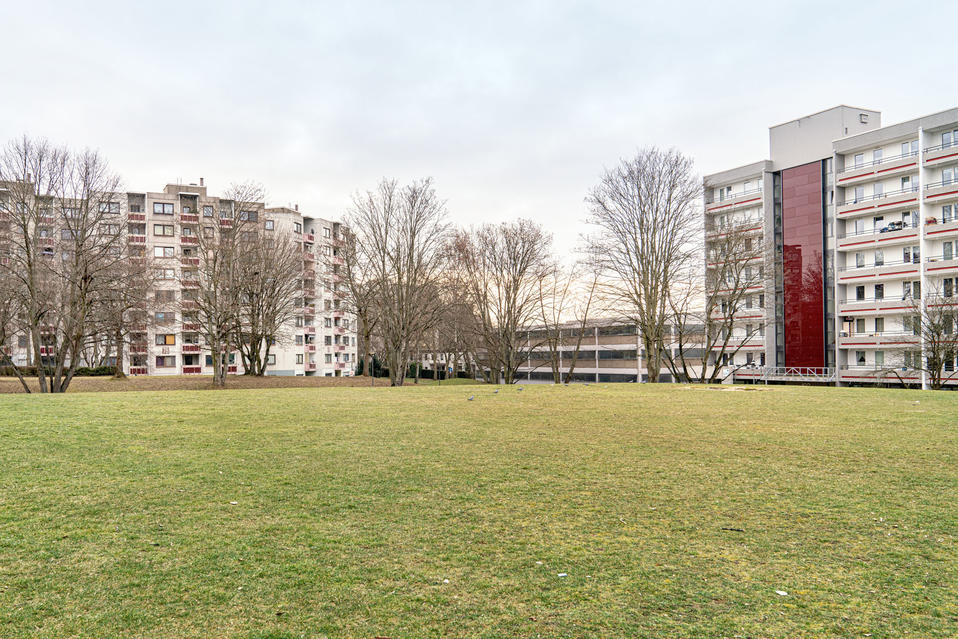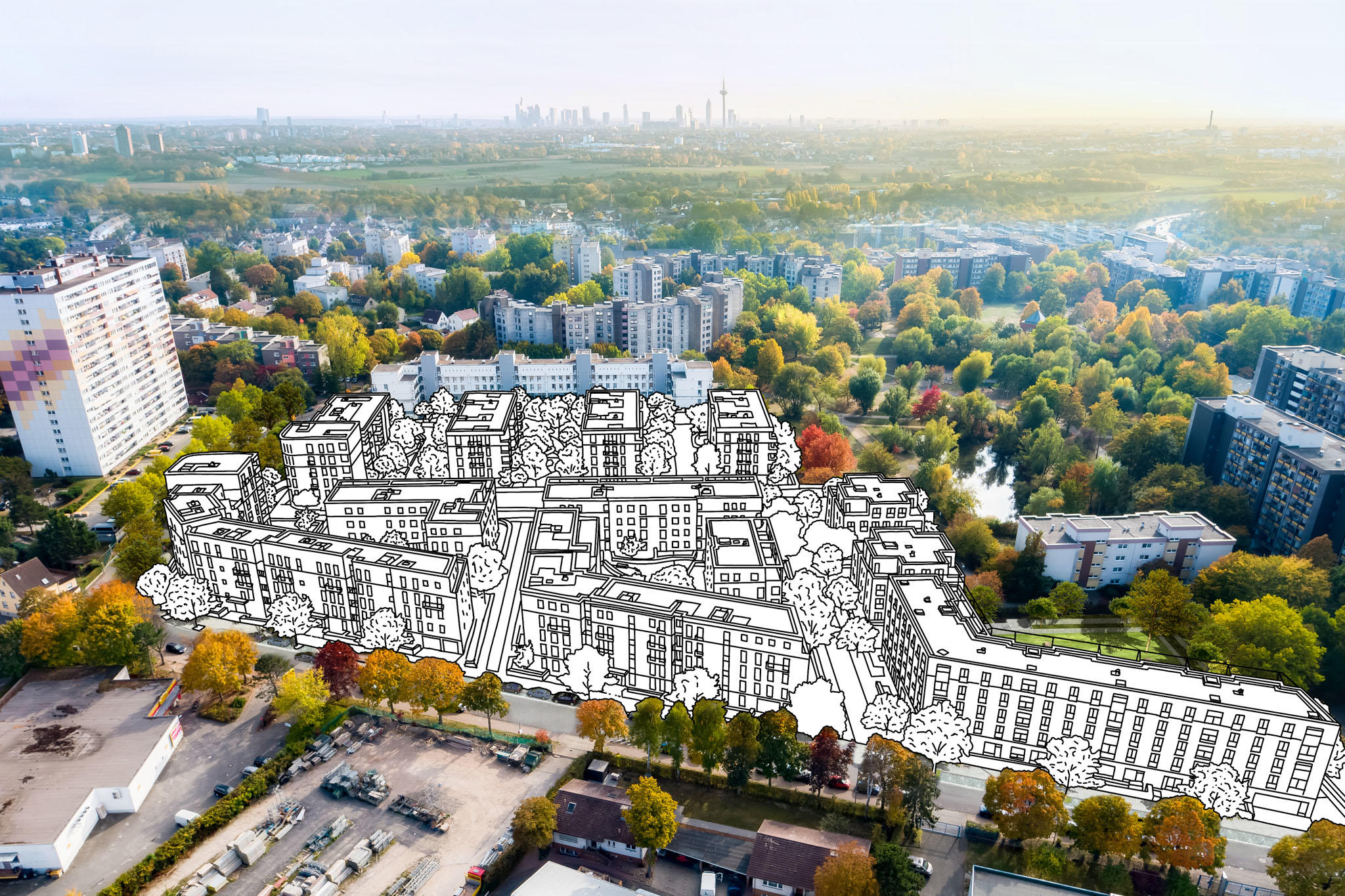
Living spaces
How GWH and the City of Frankfurt are bringing new energy to the "Bügel"
"People's ideas about this place are often way off the mark. The reality is often much better than outsiders expect" insists Wibke Hübener, estate manager for the development on Frankfurt's Ben-Gurion-Ring road, as she tracks down a free parking space. The drive to the Ring passes windowless rear walls of giant car parks behind which ten-storey residential buildings stretch up into the sky. The view also takes in a large building site. The car soon parked just a short walk from her office, graduate engineer Hübener begins to recount what has been happening here over the last few years.
The estate does not enjoy the best of reputations by any means, a verdict she considers totally unjust. "The people who actually live here are happy here and have a good community. It's a great neighbourhood and we are working together to make that clear to the outside world," she explains as she opens the office. The estate office is located on the ground floor of a building on the northern edge of the "Bügel", as the estate is colloquially referred to in Frankfurt (the name is derived from the old field names for the hill on which the estate sits). A bakery, a hair salon, a pharmacy and a household goods shop stand side-by-side nearby and several doctors have practices on the upper floor. The space behind Hübener's office window is filled by a large model railway assembled by a group of older men from the estate before Christmas. "The children were there, noses pressed to the glass, for weeks!"
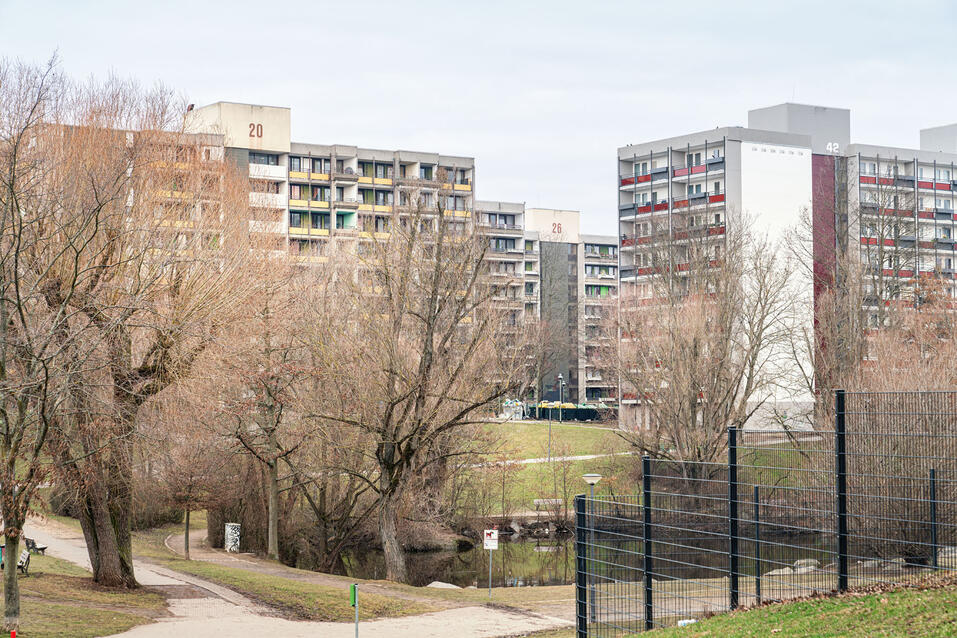
330
homes will be created by Helaba subsidiary GWH Wohnungsgesellschaft (GWH) by 2023.
GWH
Wohnungsgesellschaft mbH Hessen
Westerbachstrasse 33
60489 Frankfurt am Main
T +49 69/97 55 1-0
A sea of colour
Named after David Ben Gurion, the founder of the state of Israel, the Ben-Gurion-Ring lies between Frankfurt's Nieder-Eschbach and Bonames quarters. More than 1,600 homes, the great majority of them publicly subsidised, were built here in the 1970s and around 1,000 of them are now owned by Helaba subsidiary GWH Wohnungsgesellschaft. Some 4,400 people from 46 nations live here. "We must have one of the most colourful neighbourhoods in Germany," Hübener proclaims. The area is one of those typical sprawling residential complexes erected in response to the challenges of the post-war years, challenges which in Germany included the huge numbers of homes lost during the war, millions of refugees from former German territories to the East, the process of emigration to the cities that persisted throughout the period of the economic miracle and the high birth rates of the 1960s.
All over Germany, people urgently needed somewhere to live. Planners and architects in many of the big cities responded to this demand with projects intended to make it possible to "Build homes that could be let with subsidised rents quickly, flexibly and cheaply," as the authors of a City of Frankfurt publication about the urban development concept for the Bügel put it. This book, a tome as substantial as it is colourful that occupies pride of place on the table in Hübener's office, documents the restart that the district has devised since 2017 together with the city authorities. Two years previously, the city put the Ben-Gurion-Ring forward for the "Soziale Stadt" ("Social City") urban development funding scheme, a programme for urban districts in particular need of development supported by the German federal government, the State of Hesse and the City of Frankfurt and now know under the name "Sozialer Zusammenhalt" ("Social Cohesion").
Wibke Hübener
"The question is how to regenerate the estate on the Ben-Gurion-Ring. And I cannot imagine any better experts to advise on that than the people who actually live here," Hübener says. A series of workshops, meetings and initiatives were organised to bring residents and experts together. The result? A total of 16 measures ranging from a campaign to improve the district's public image to green space improvements to a neighbourhood meeting place in the form of a community cafe. District management, for which Hübener is responsible on site, is also included in this "integrated urban development concept".
Social City
4.400 people from
46 nations
already live in around 1.000 homes owned by GWH at Ben-Gurion-Ring
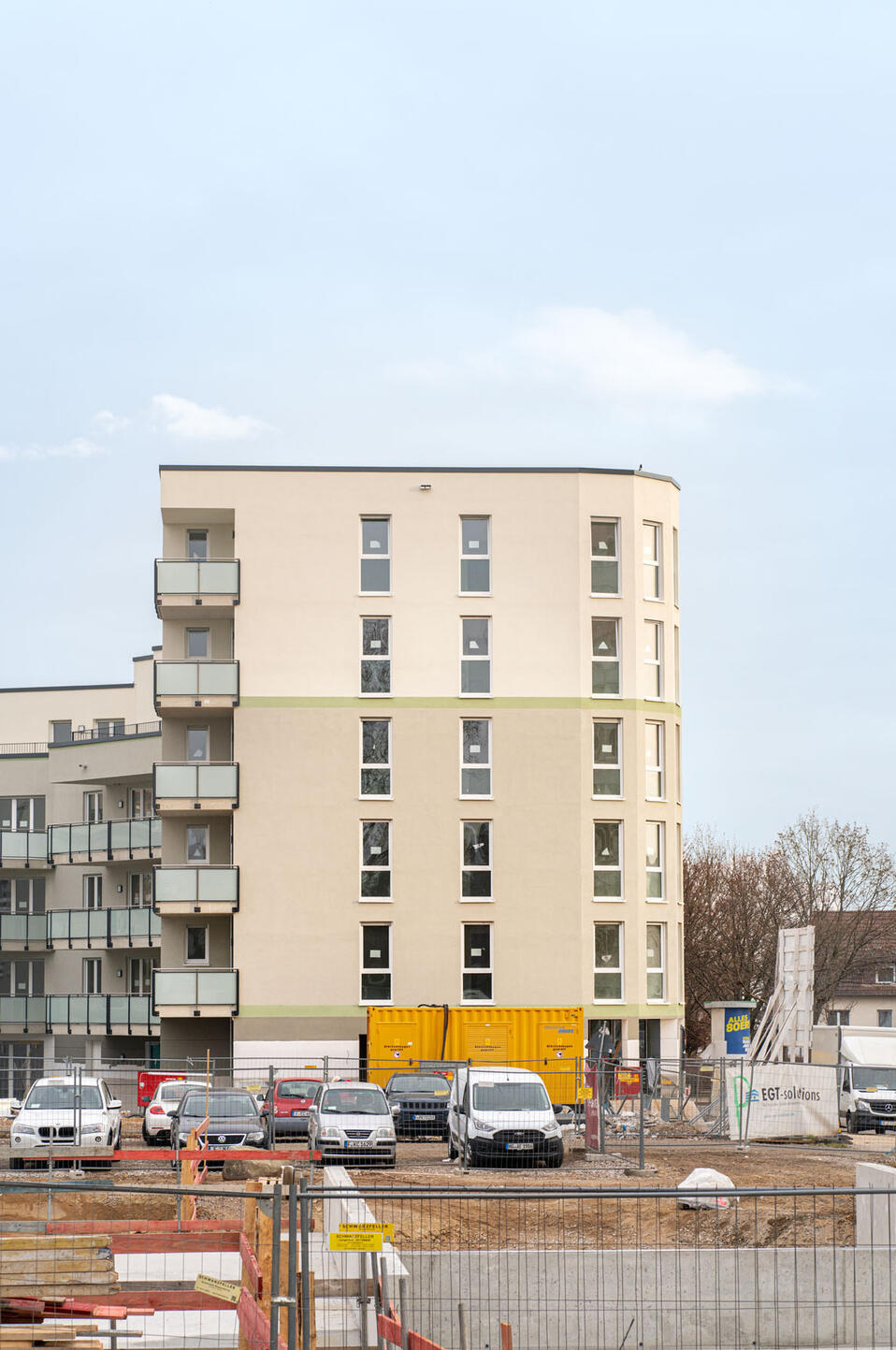
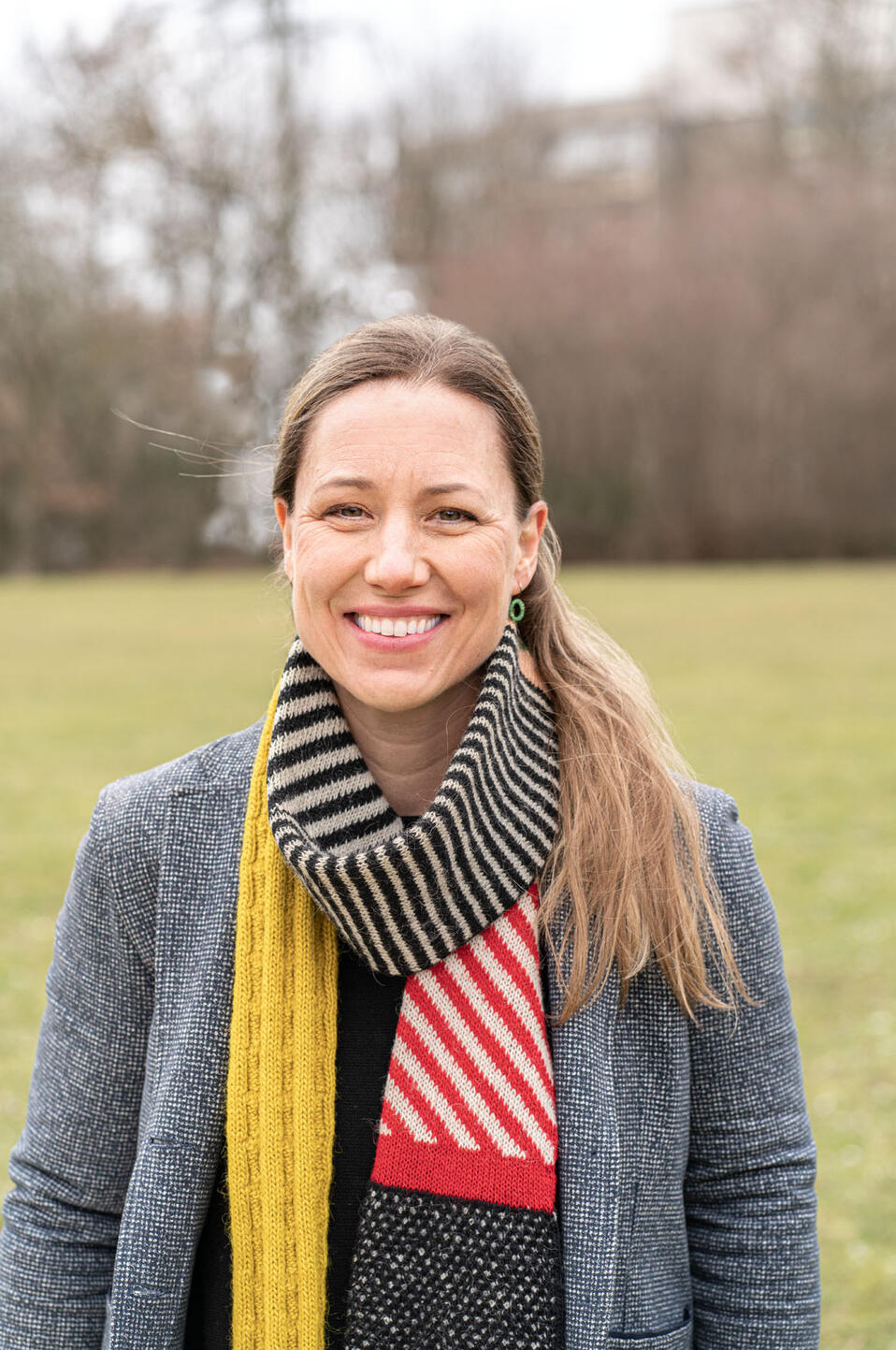
Additional homes designed with the community in mind
The office door opens and in steps Christian Wedler, Managing Director of GWH Bauprojekte. The largest property owner at the site, GWH has been working to add a new residential section to the estate since 2015. "We aim not just to create urgently needed new residential space for Frankfurt but also to give the whole area a lift, so we are designing new public spaces and new infrastructure for current residents as well as for the people who will come and live here in the future," explains Wedler, who specialises in projects to add new homes in existing neighbourhoods.
Christian Wedler
"With 330 homes, we are creating a whole new little residential quarter – and completing the Ring at the same time." The project closes a circle for Wedler at a personal level too. "When I first joined GWH 25 years ago, I stood here – a young man from the countryside – and gazed in wonder at the towering buildings," he recalls. "Today I know how far GWH has brought the estate over those 25 years." There has been very significant investment but this is often not evident from the outside, which is one of the reasons Wedler is keen to see improvements to paths and open spaces as well as internal upgrades to existing buildings and homes. "The new development, in contrast, will be a highly visible addition," he says, pointing to a model of the Ben-Gurion-Ring to show how all the pieces will come together.
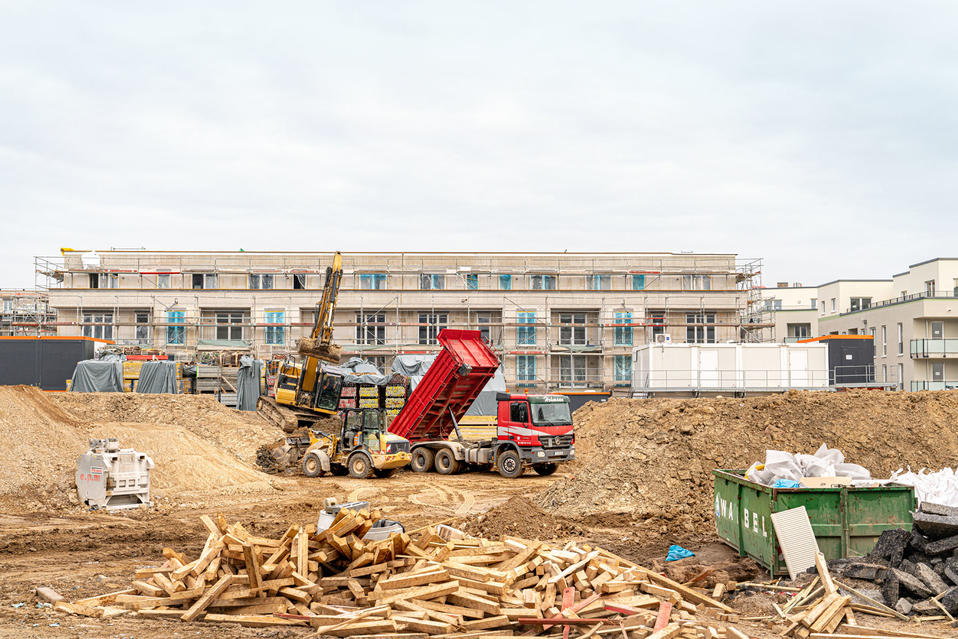
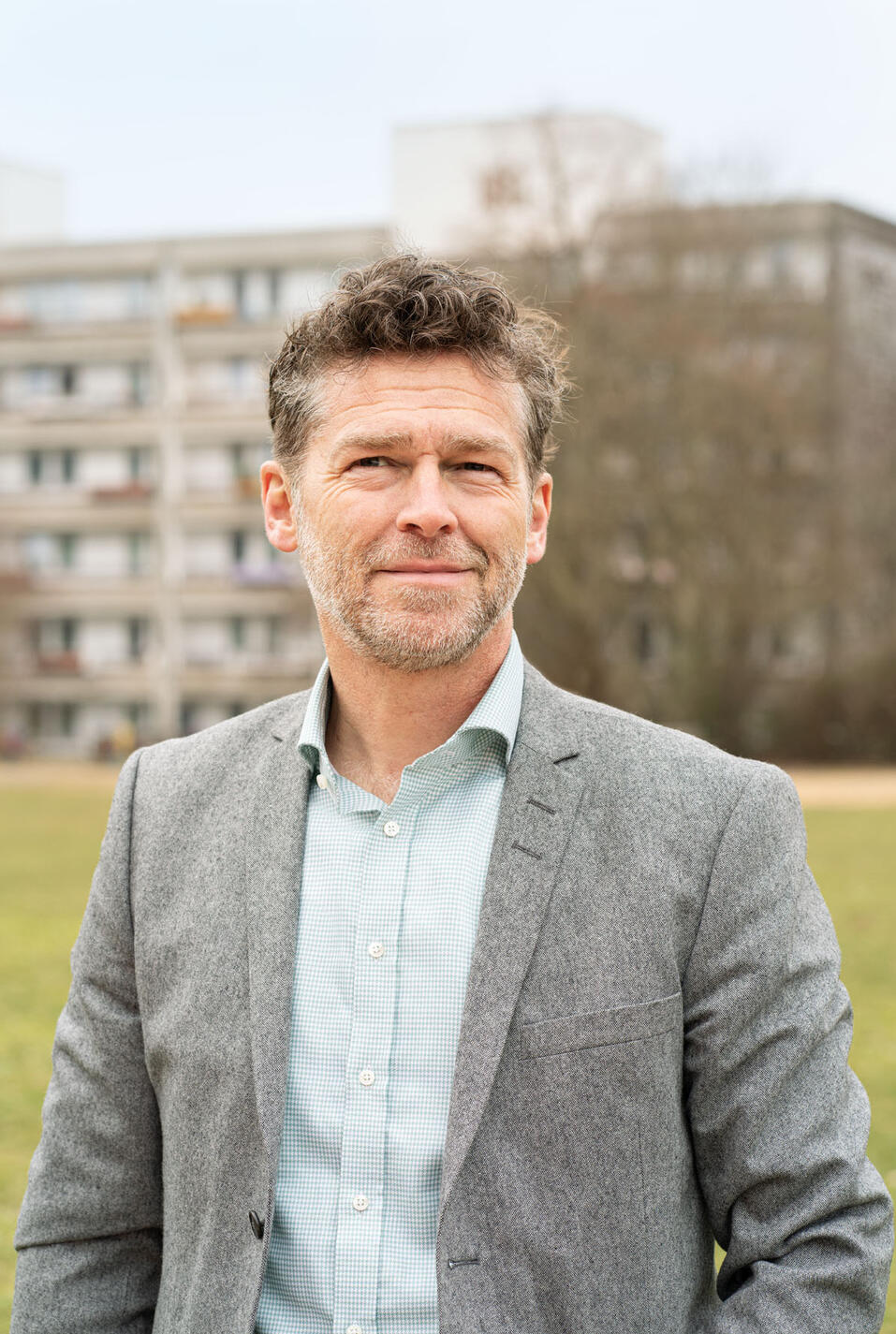
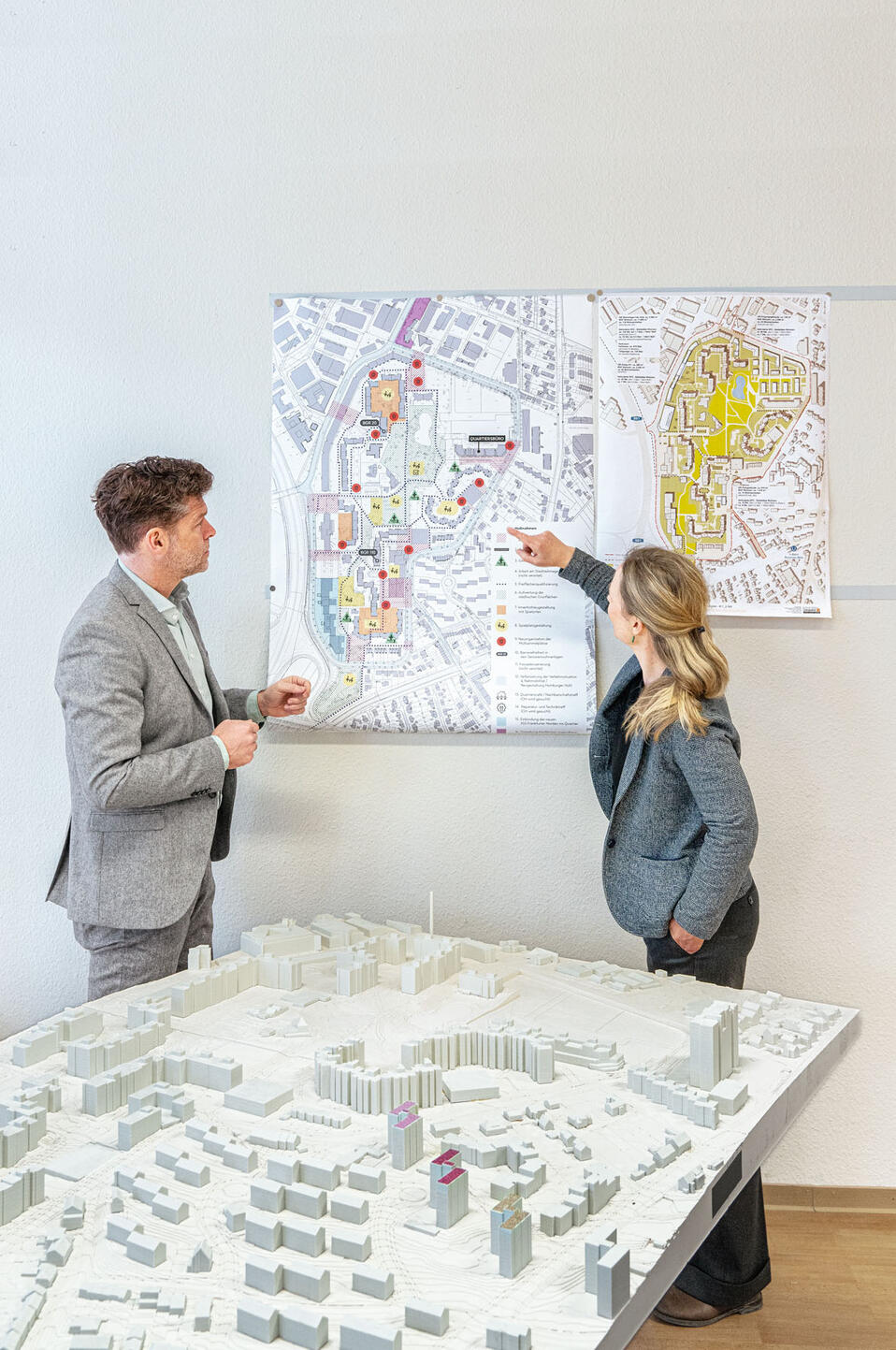
Enhancing infrastructure
Will increasing the number of residents as planned place too much of a burden on the estate's services? Wedler shakes his head: "The infrastructure at the Ben-Gurion-Ring site is excellent. Residents can meet all their day-to-day needs on foot and here, in contrast to a greenfield location, public transport, shops and medical care are all already in place. The new development will integrate very well with the existing setting too – and without taking up a huge amount of space." GWH, he adds, has also invested heavily in improving the social infrastructure with a childcare facility and student apartments. One of the highlights for Wedler are the private and public parks and grounds, for which he cannot thank the 1970s planners enough: "They had a wonderful eye and feel for green spaces."
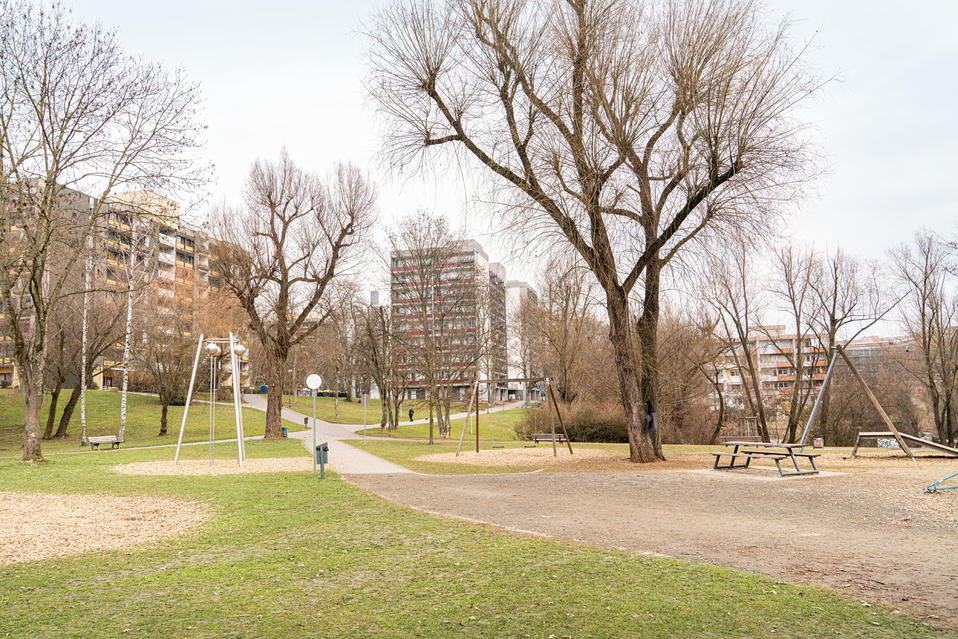
"Why don't we pop out quickly and have a look," estate manager Hübener suggests. The short path leads to a small lake, which forms a focal point in the northern half of the estate. Visible across the water is the construction site and the emerging new buildings; on this side, well spaced out, are a large playground, a centre providing out-of-school learning opportunities for children and the red brick form of the Catholic Church of St. Lioba. Tucked away behind high trees that have yet to reveal even a hint of green are the 1970s residential buildings. Some show signs of extensive renovation: new windows, new insulation, fresh paint. A couple of children have come out to play and the sound of work on the construction site can be heard from time to time but for such a large city estate, the place is really very quiet – verging on the idyllic even.
"Obviously it will be a big change and the infrastructure here is undoubtedly going to see greater use in the future. New people bring new energy."
Christian Wedler
Hübener's views on the new development are clear: "Obviously it will be a big change and the infrastructure here is undoubtedly going to see greater use in the future. At the same time, there is much to be gained from the new homes and the urban development programme. New people bring new energy, we will gain a meeting place for the neighbourhood and much more besides." Looking out across the still wintry grey-green lawn she adds with a laugh, "I want to see lots of picnic blankets here in the summer."
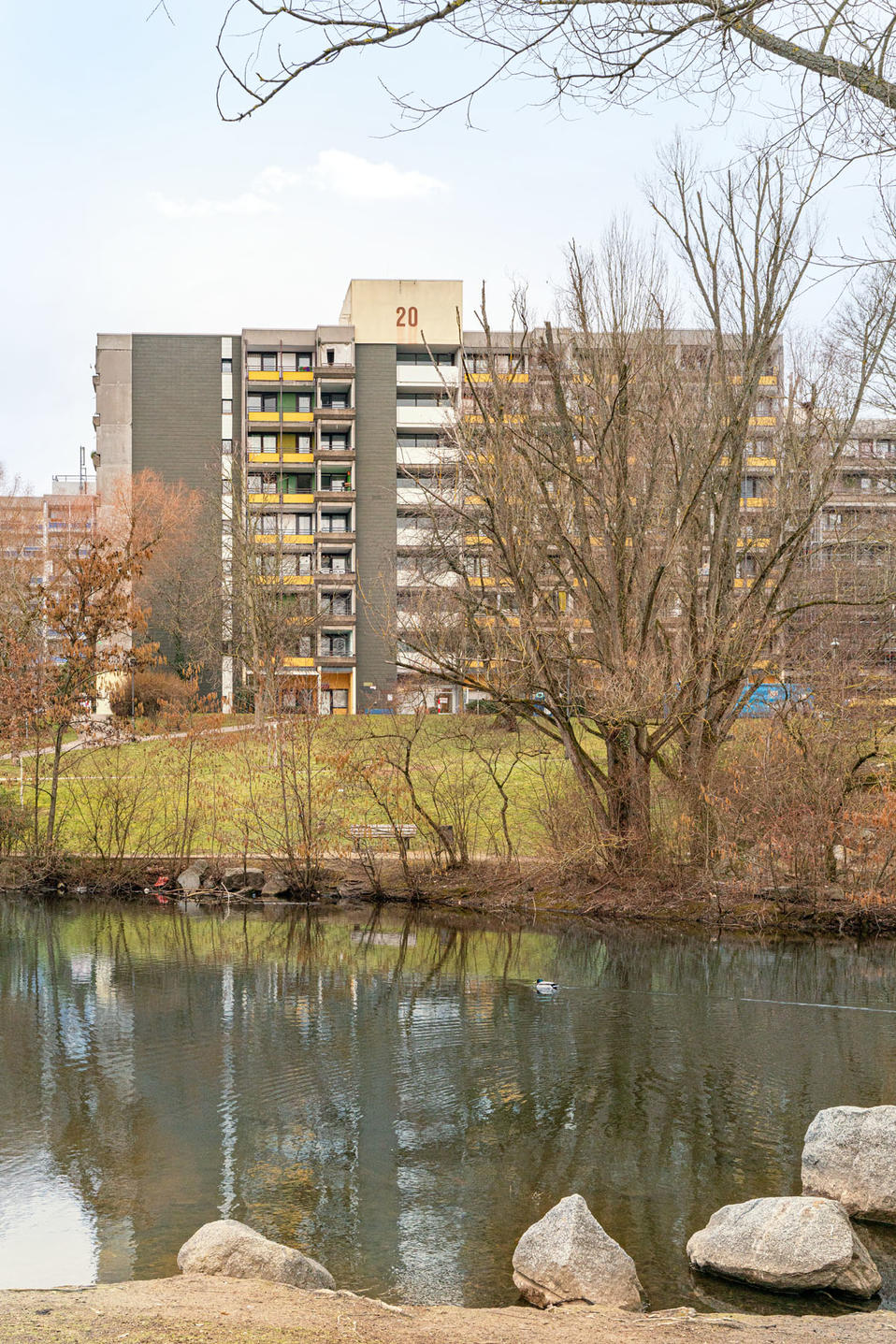
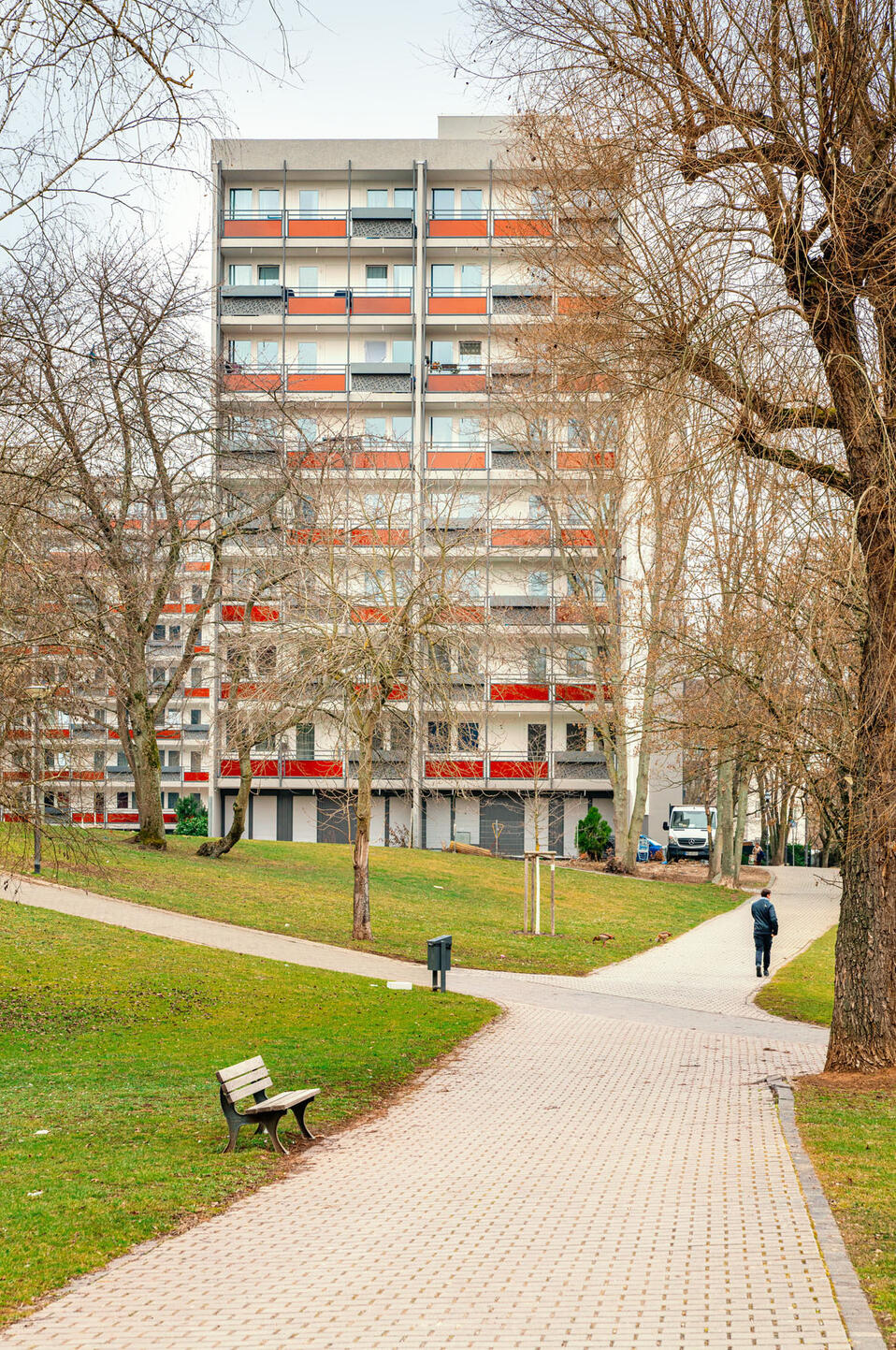
Further Stories
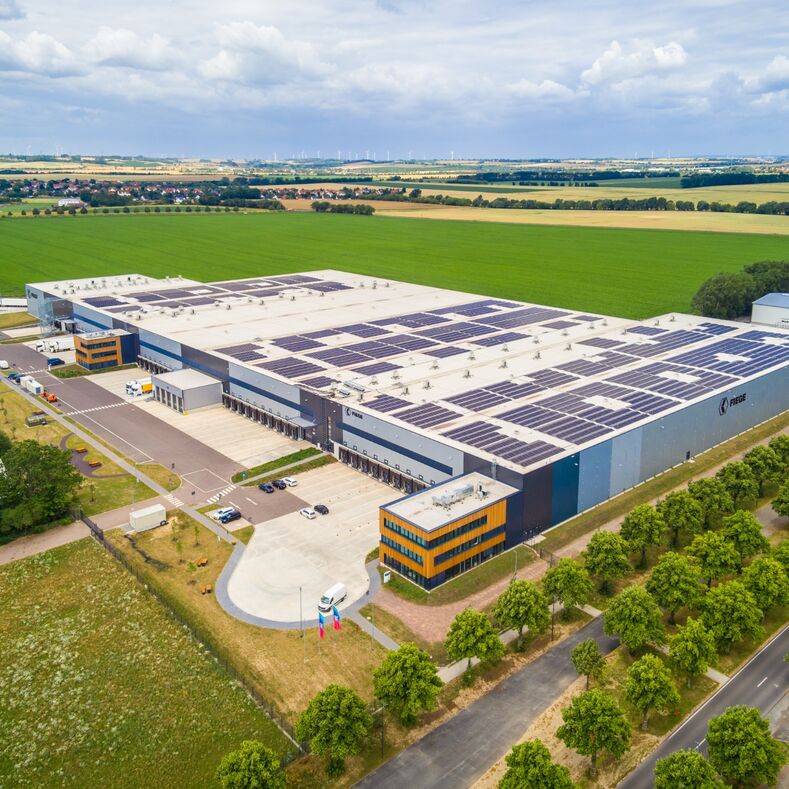 ESG-Story FIEGE & Helaba
ESG-Story FIEGE & HelabaESG-Story FIEGE & Helaba
The FIEGE Group successfully incorporated a sustainability element into its existing syndicated loan. Fast internet for all
Fast internet for allFast internet for all
Households, companies and institutions need fast internet service. Plans have already been drawn up to expand the fibre-optic infrastructure – with financing provided in part by Helaba.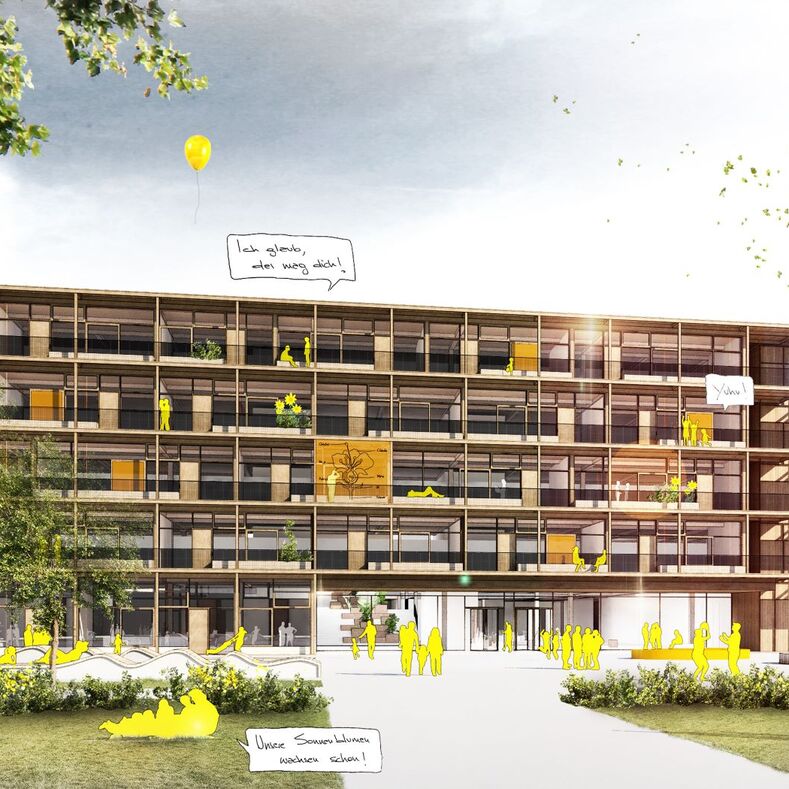 Financing of schools and educational infrastructure
Financing of schools and educational infrastructureFinancing of schools and educational infrastructure
In Nuremberg, Helaba has joined forces with Sparkasse Nürnberg to finance the new Martin-Behaim-Gymnasium, a college preparatory school that will be attended by about 1,500 students.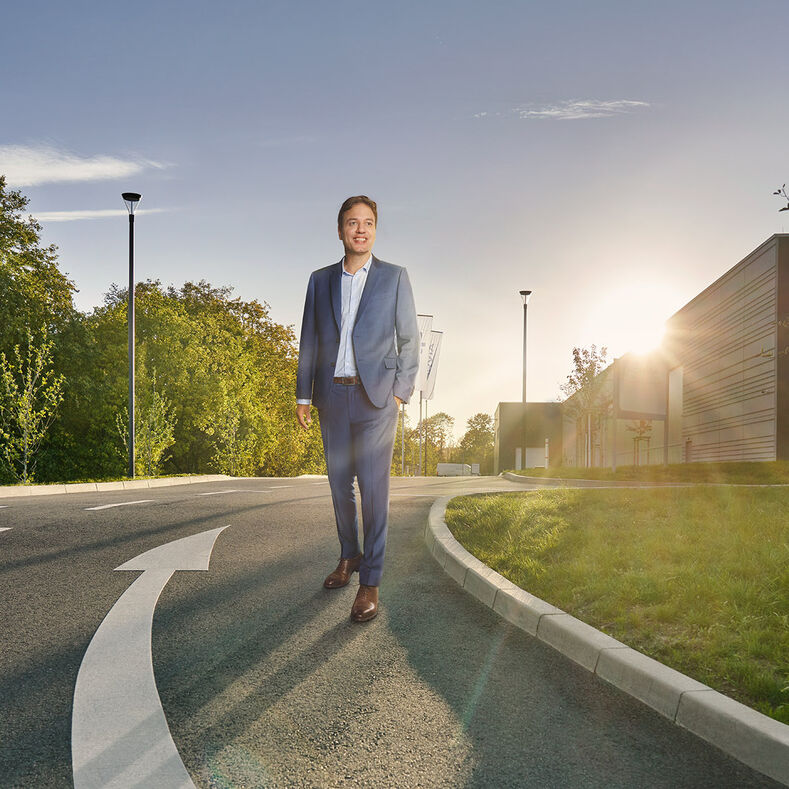 ESG-linked Schuldschein for Faurecia
ESG-linked Schuldschein for FaureciaESG-linked Schuldschein for Faurecia
As part of its ambitious CO2 reduction strategy, Helaba is supporting the automotive and technology company Faurecia with a tailored ESG-linked Schuldschein, which represents a real innovation in the market.

